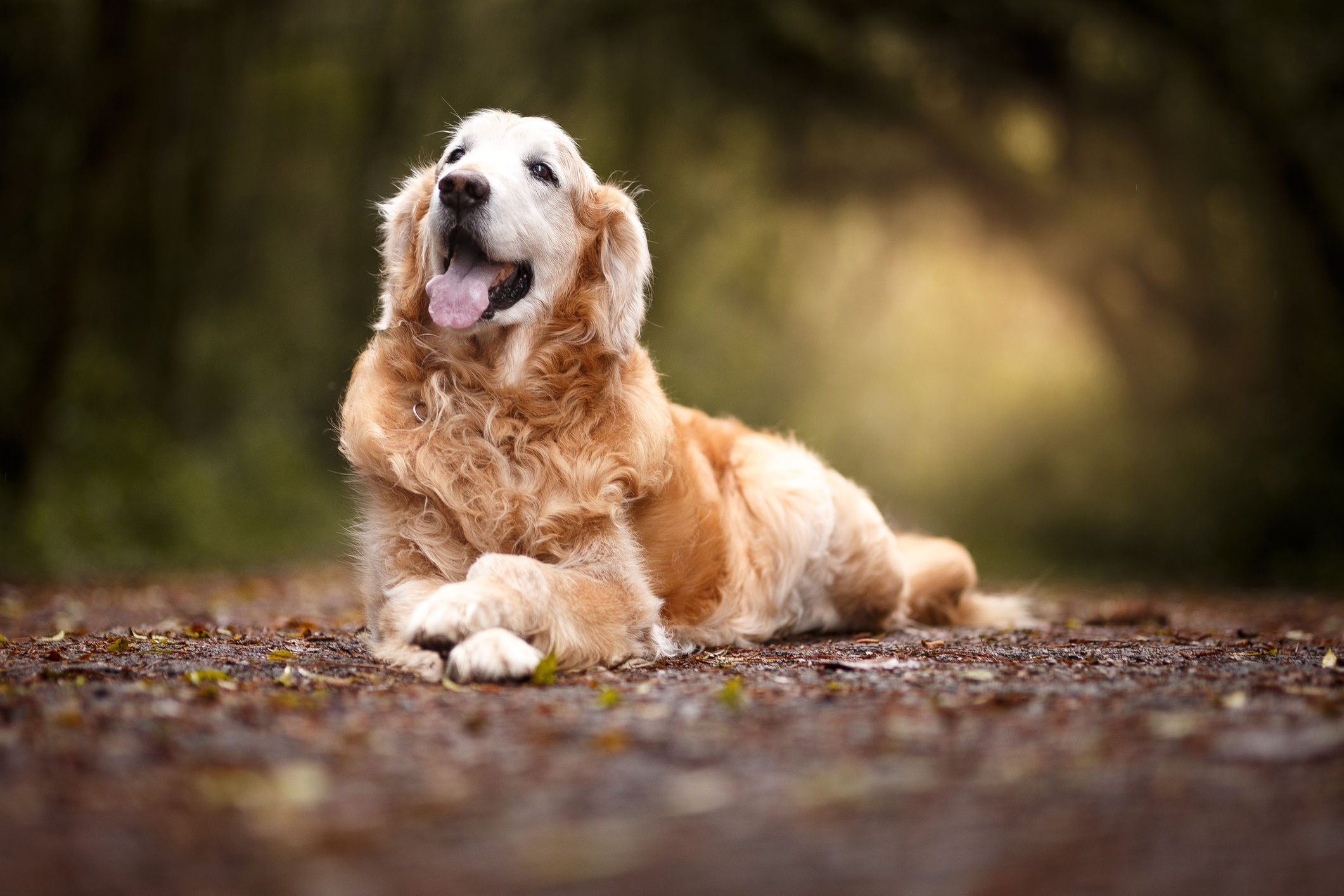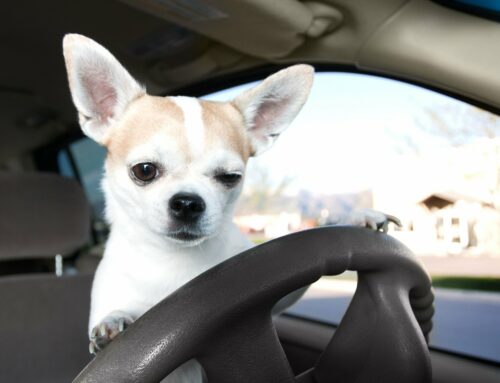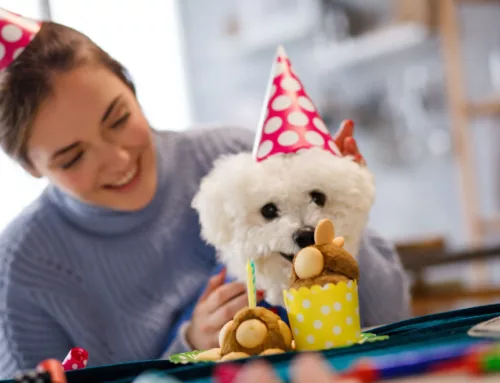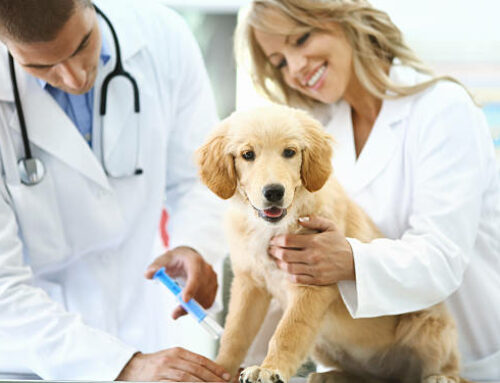Watching your dog grow old can be a bittersweet experience. On one hand, you get to spend another year indulging in the happiness they bring, you get to watch as their personality continues to shine as the dog you know and love. On the other hand, you must also embrace the fact that the way time works means they leave us all too soon – no matter when it happens, it will always feel too soon.
As your dog ages into a senior, there are some things you can do to ensure you are making their life as comfortable as possible for them in their later years. Do these things and you can rest assured that you will be doing your best to help them stay as happy and healthy as possible in their old age.
Age-appropriate Diet
Just as you give special food to puppies, when your dogs enter their twilight years it is important to adapt their diet to cater to this. It is likely that your dog will be less active as they get older; a lot of the time this is due to generally lower levels of energy and often joint pain (it is not uncommon for senior dogs to develop arthritis).
Many dogs’ metabolisms will also reduce as they age, meaning they cannot burn the calories they get from their food as quickly as they did when they were younger.
As such, it is recommended that you feed your dog slightly less food than before, or perhaps give them their food little and often rather than two large meals a day, which will make it easier for them to burn off and digest, or give them food that is lower in fat. Doing so reduces the chances of them becoming overweight, subsequently reducing the risk of diabetes and extra pressure on their joints.
Many brands of dog food produce food that is specifically made for senior dogs, typically they are lower in fat and calories and may also include easily digestible meat so your dog is eating enough protein.
Any health conditions should also be taken into consideration when changing your dog’s diet. For example, dogs with kidney problems should have a limited sodium and protein intake, whilst it is recommended for dogs with arthritis or poor, irritated skin and brittle fur to have food high in omega-3. Your dog’s oral health should also be considered; if they have poor or fewer teeth, for example, then hard, dry kibble may be harder or more painful to eat than softened kibble and/or wet foods.
It is always a good idea to consult with your vet about what diet will be best for your dog and their recommendations on any food or supplements they should or shouldn’t be having, as well as what is an appropriate amount and frequency to feed them.
Remember, your dog may be a lot slower than before, and as such may require some encouragement and patience when feeding. For dogs with arthritis, consider raising their bowl in a stand so they don’t have to bend down so low, and find somewhere quiet for them to eat, leaving their food out for them so they can eat it at their own pace in their own time.
Exercise
Although they may be slower and less agile than they used to be, it is incredibly important that your dog receives enough regular exercise. Though their mobility may start to decline, maintaining a healthy and active lifestyle is important to decrease the onset of your dog developing age-related ailments, such as arthritis and loss of muscle mass.
They may not be able to run around and jump anymore or even walk for as long as they used to, but you should still take them on regular daily walks so that they have an opportunity to stretch and use their muscles and burn off their food.
It is likely that you will need to take a shorter route than before, since your dog may become tired quicker or be in discomfort the longer they have to walk – always pay attention to their behaviour and observe whether they have reached their limit or not so you can adjust the route accordingly.
If you have a garden, regularly giving your dog the opportunity to go outside and explore independently is another way for them to stretch their legs and move around in the fresh air. There are also indoor exercise activities they can partake in. Though energetically playing with toys may not be as feasible for them, puzzle toys are a great way of exercising both their brain, body and senses, albeit in a much gentler way.
Regular Checkups
As with humans, health problems in dogs are likely to occur at an older age. This is why it is recommended to take them to the vets for more regular checkups than you previously would have done.
Once every six months is the advised frequency for general checkups for senior dogs. This will allow your veterinarian to identify any concerning signs that require further diagnostics early on, allowing any issues to be detected, treated (either through veterinary surgery or prescriptions) and prevented as best possible before they become worse and lead to further complications later down the line, which may then cause more discomfort or pain for your beloved pet.
In the worrisome case that your poor pooch is said to have an ongoing or chronic illness or ailment, by detecting it sooner rather than later, then you will have the peace of mind that they will get the best possible treatment to manage this in a way that eases their pain and allows them to spend a few more loving years by your side.
Accessibility
Due to their reduced mobility and potential joint issues, older dogs may struggle to get up and down the stairs or onto furniture or raised beds that they would before be able to do with ease.
In order to make their life more comfortable and prevent them from attempting these activities that may cause them harm, it is a good idea to accommodate for their lacking mobility by preventing them from going up/down the stairs and onto furniture (e.g. using stair gates), or by making these more accessible.
For example, if your dog has its own sofa (as many larger dogs like to claim for themselves) or arm chair, or you can’t resist having your furry friend relax on the bed with you, then you can get special ramps for dogs that allow them to still access these places in a way that is safer and kinder on their body.
If you have hard flooring, then it may also be a good idea to introduce rugs, especially in the areas your dog frequents or where their bed is, as this will help them find their footing and be easier for them to move with surety without potentially slipping.
Prepare for Their Passing
Perhaps one of the hardest things to do in life is saying goodbye to a loved one, and that includes your beloved pet. The thought and knowledge that your dog will soon pass is understandably hard to process.
Quality time with your dog is important at all times to maintain your special bond, and it is important to keep up with this quality time in their later years. Give them an extra few cuddles, fussing and scratches behind the ear. Your dog already knows that you love them, but it will help you feel better to know that you’ve shown them just that extra little bit of care when the time finally comes for their passing, so you don’t feel regret that you missed any opportunities to show them some love and appreciation.
In some cases, many people will hear the heartbreaking advice from their vet that their dog be put to sleep due to poor health. If this happens to you, as much as you don’t want it to happen, you should listen to and trust your veterinarian. As hard as it may be, it is the kinder and most humane thing to do in order to relieve your dog of their pain and suffering, which you no doubt will not want them to be experiencing.
Many veterinary practices allow you to be with your dog during this process, allowing you and your family to properly say goodbye to them, knowing that they will at least be passing on peacefully and painlessly in the comfort of your familiar and loving embrace.
When the time comes that your dog does pass on, remember to let yourself grieve. It is a natural emotional reaction to experience intense feelings of sadness in this situation – your dog is another member of your family, afterall, so don’t force yourself to get over it or bottle up your feelings of grief. Allowing the grieving process to naturally happen will allow you to eventually overcome the loss so that you look back with a fondness at the happy memories you have of your dog, only slightly tinted with sorrow.
Remember that you have given your dog a happy and enriched life, and that’s the best thing you can do for them as a pet owner.
Bay Vets
If your dog is entering its twilight years, then consider taking them to Bay Vets. Located in Lancaster (with three other surgeries in the surrounding area), we offer frequent health check ups for pets over the age of 7 to preserve and enhance the quality of life for your older dog, and are also able to offer nutrition advice on what they should be eating.
As well as caring for older dogs, we care for animals of all kinds and ages, offering services such as pet vaccinations, pre and post operative checks and more.
Don’t hesitate to get in touch with us with any questions regarding our services and practices.





